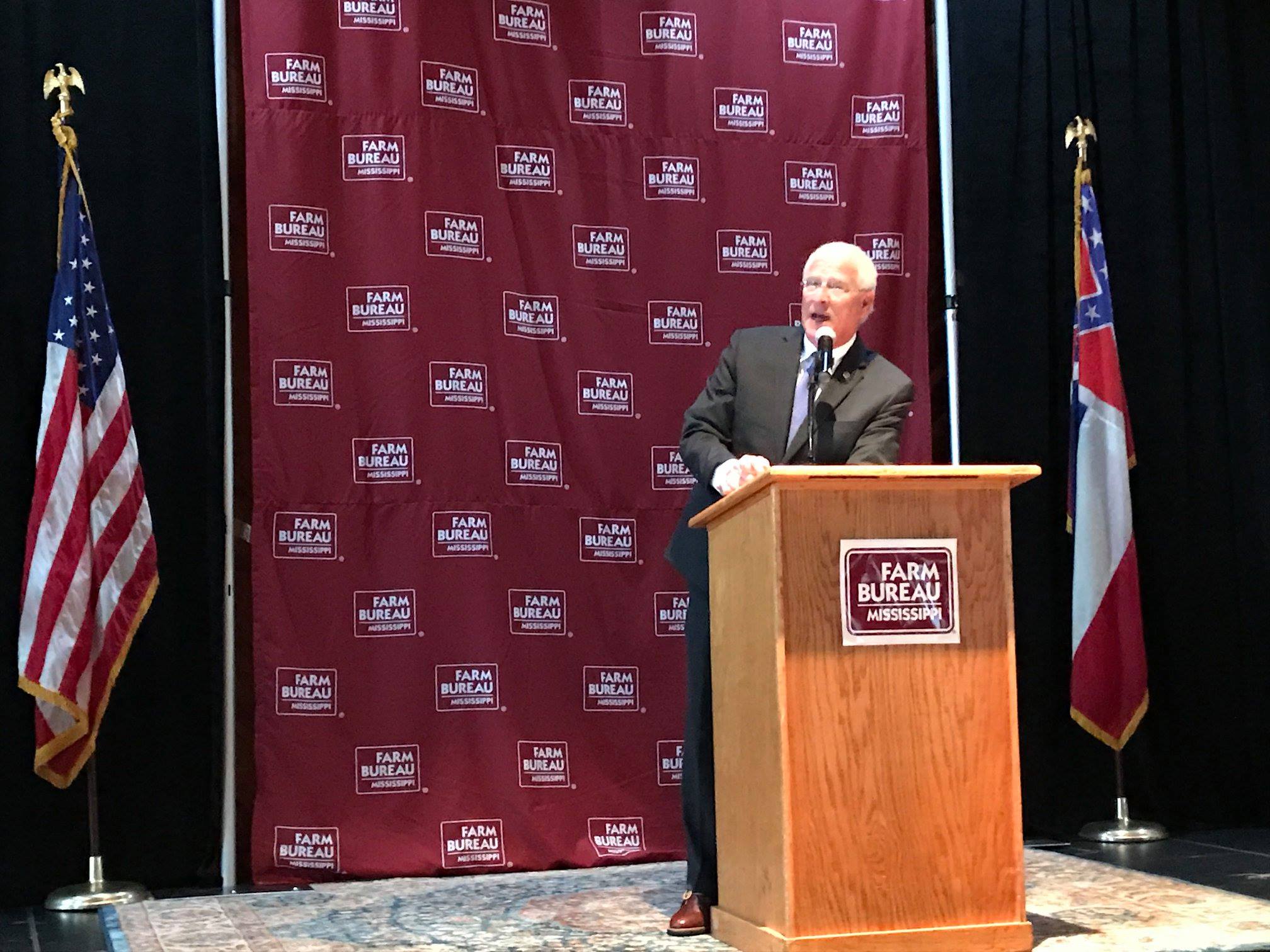News
Trump’s heated rhetoric not in line with U.S. actions: American senators

“The president says he’s not a globalist, he’s a nationalist. Yet, he’s sending his secretary of state all over the world trying to solve problems,” Wicker told delegates during a plenary discussion. (File Photo: Roger Wicker/Facebook)
HALIFAX — Two outspoken U.S. senators — one Republican and one Democrat — took aim Friday at President Donald Trump’s fiery rhetoric about rejecting globalism in favour of nationalism.
Republican Sen. Roger Wicker and Democratic Sen. Jeanne Shaheen told delegates to the Halifax International Security Forum that the United States’ commitment to international co-operation should be judged by the country’s actions, not Trump’s words.
“The challenge is the rhetoric,” said Shaheen, a senator from New Hampshire who is also a member of the influential Senate Armed Services Committee.
“It is the president’s statements versus American actions and commitments. That’s where the disconnect is … There is a bipartisan commitment in Congress to invest in the world and to continue to be engaged.”
Wicker, a senator from Mississippi who is on the same committee, agreed with Shaheen.
“The president says he’s not a globalist, he’s a nationalist. Yet, he’s sending his secretary of state all over the world trying to solve problems,” Wicker told delegates during a plenary discussion.
“I think the president is someone who believes that we need to convince the American people that our … global responsibilities need to be shown to be in the national interest.”
Both politicians were quick to stress that despite Trump’s negative comments about NATO earlier this year, the president renewed his country’s long-standing commitment to the military alliance at a July meeting in Brussels.
Canadian Defence Minister Harjit Sajjan also weighed in, saying it was his experience that the United States has become more co-operative on the international stage, despite the perception that Trump is pushing an isolationist agenda.
“It seems there has been greater co-operation, more action,” said Sajjan, who has served as defence minister for the past four years.
“On the security side of things, we’re being able to have discussions that turn into action far faster now. The U.S. should be judged on their actions.”
After the plenary, British Air Chief Marshal Stuart Peach, chairman of the NATO Military Committee, said the U.S. commitment to the 29-member alliance is firm.
“The U.S. is committed to NATO without reservation,” Peach said in an interview with The Canadian Press.
“I’m not here in Halifax to comment on political statements … The president of the United States, along with all the other heads of state, have committed to make the alliance fit for purpose for the future.”
In July, Trump raised concerns about his country’s role in NATO by criticizing other members — including Canada — for failing to meet their commitment to spend two per cent of their gross domestic product on defence.
He also suggested the United States might not come to the aid of a fellow NATO member if they were attacked, which is one the founding principles of the alliance.
The three-day defence and security conference, which is marking its tenth year in Halifax, has attracted 300 security experts, politicians and military leaders from around the world.
But virtually all of the delegates have one thing in common: they represent democratic regimes. And the stated goal of the forum is to make democracies better.
Earlier in the day, Sajjan told a news conference that Russia’s disruptive behaviour on the world stage is a key concern for Canada.
The minister cited Russia’s annexation of Crimea and its aggressive posture toward neighbouring Georgia as examples of a worrisome trend.
“The disruptive nature that Russia has taken, it goes against the rules-based order that we’re used to,” he said.
Sajjan said the recent commemorations marking the 100th anniversary of the end of the First World War serve as a poignant reminder of the fragility of democratic institutions.
“It’s even more important now that nations act in a responsible manner; that we do not provoke,” he said.
“Unfortunately, because of the actions that Russia has taken, we do need to make sure we send a strong message of deterrence, and with NATO we are doing that.”
Canada has taken a particular interest in confronting Russia’s use of so-called hybrid warfare, which blends conventional warfare and cyber-warfare to destabilize democracies, Sajjan said.
Peter Van Praagh, president of the forum, said Russia’s internal struggles have had an impact on the rest of the world.
“Russia is a great country historically, but Russia is also a failing country, simultaneously,” Van Praagh told reporters.
“Russia is struggling with both of those things going on at the same time.”





















